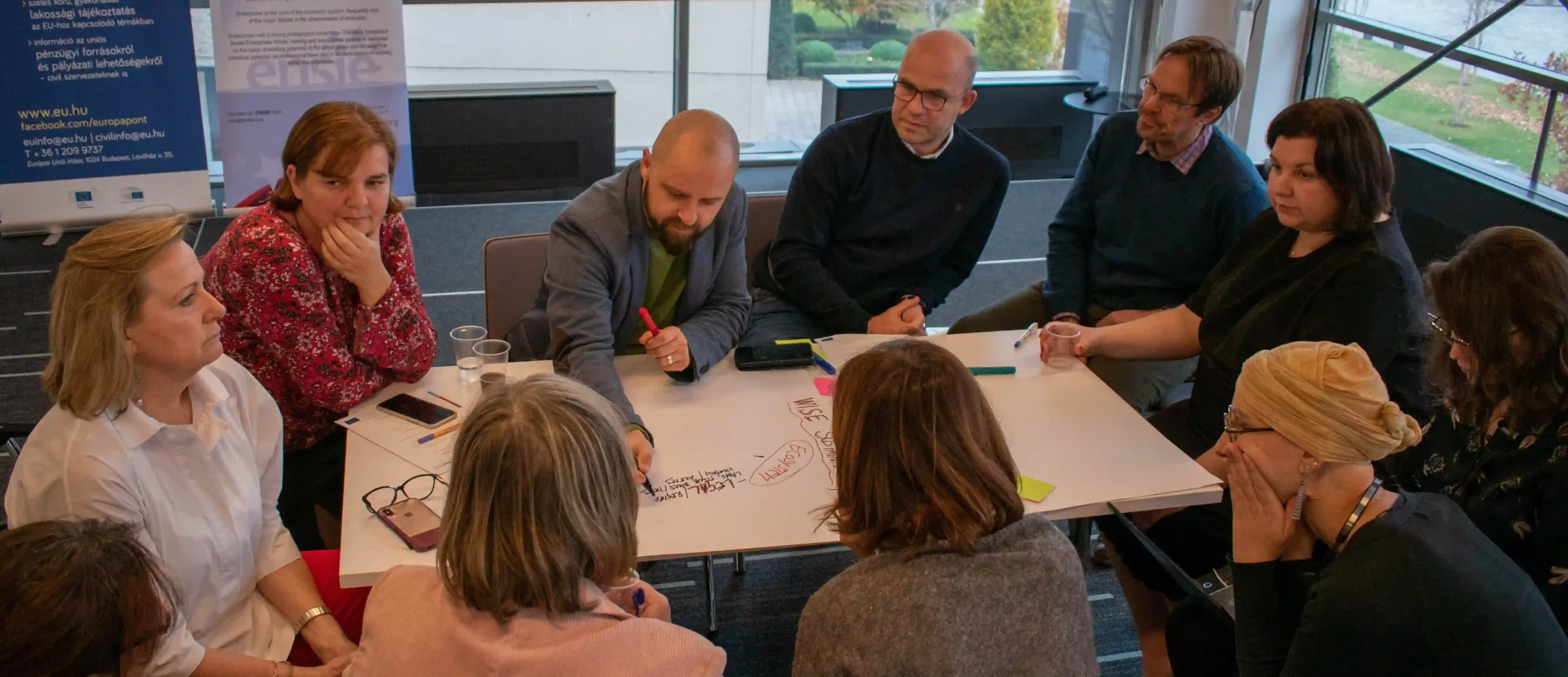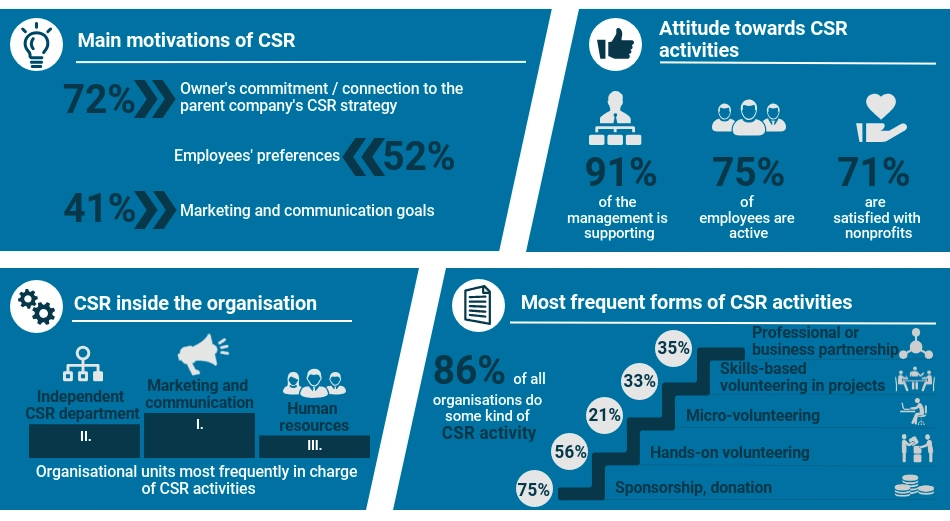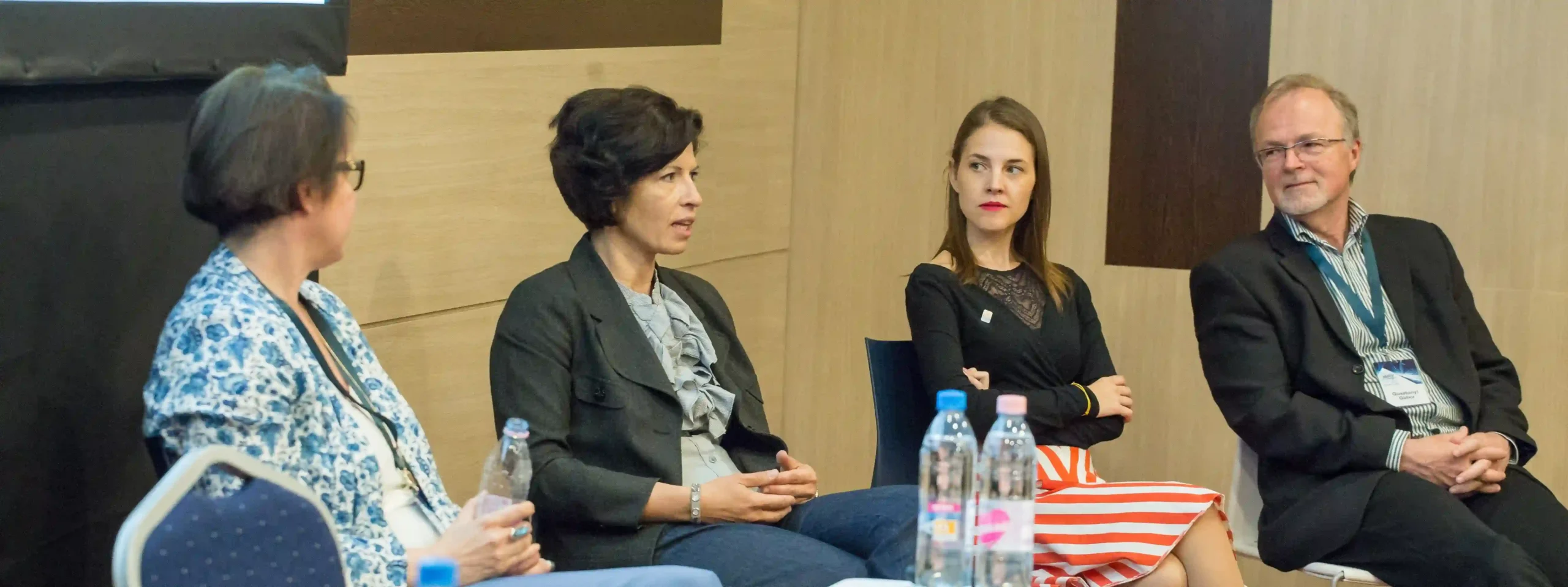The cooperation among social enterprises is a key step to reinforce this sector. Beside the community of researchers and experts, the organisations of the European Union also handle the strengthening of networking as a priority task.
The event of ENSIE’s European seminar series held in Budapest was hosted by Galileo Progetti Nonprofit Kft. and supported by Hétfa Research Institute and IFUA Nonprofit Partner. IFUA Nonprofit Partner was also represented on the event as an expert.
Some of the highlighted topics were: the social integration of underprivileged groups and their introduction onto the labour market, work integration social enterprises (WISE), the networking between WISEs. On the international event, beside the presentations that gave insight into the Hungarian social enterprise sector, another important aspect was the exchange of experiences of participants coming from all over the European Union. During the talks we gained a complex perspective on the situation of European social enterprises.
The reinforcement of cooperation among social enterprises is the key task of the sector
Networking within the sector is not yet a successful story in Hungary: the number of networks and their ability to inforce interests that would support cooperation and common representation is low. Networks have a reactive instead of a proactive role in the discussions about social enterprises; they do not serve as representatives.
Social enterprises have to deal with general shortage of experts, therefore with lack of business knowledge. The merge of the available material and human resources along the supply chain would increase the participants’ power in the market. Nonetheless, organically only few relations can develop, so there is a big need for the involvement of external professional organisations.
A successful example of external intervention is the brand (V)egyél baranyait! (wordplay on the similarities of the Hungarian words „eat” and „buy” from Baranya), created by 6 food producing social enterprises located in Southern Hungary, and supported by the National Alliance of Social Enterprises (TAVOSZ) as an external expert. Within the cooperation costs are distributed, they can reach a wider group of costumers, they can create more jobs and also promote their region.
There are widening opportunities to develop thematised relationships as well. The institutions of the European Union focus actively on supporting the networking: for example, this is one of the main topics of the grants provided by the ESF (European Social Fund). Besides, the reinforcement of cooperation is one of the key elements of the actual strategy of ENSIE. The growing number of social enterprises, consultancy and research organisations, the incorporation of universities increases the chances of cooperation.
The sector faces sustainability challenges beside its reinforcement problems
It is a general problem in the European Union, that there is no established legal form for social enterprises. In Hungary, the social cooperative form was established in 2006 to fulfil this role, but this legal framework is not suitable to support all social entrepreneurial activities.
By investigating the Hungarian ecosystem, it comes clear that it still remains a thread for the sector that beside the European Union’s grants, no national or private investors’ funding is available for social enterprises, and there is no national strategy for the development of the sector.
Parallelly, social enterprises are also affected by global trends: changing tendencies in commerce, digitalisation, generational change of owners and employees. Among management tasks, finding balance between social and financial goals adapted to the organisation is an important task; this means how capable is the manager to create a culture where this dual goal is efficiently embedded.
Because of digitalisation, certain jobs will change or even disappear both in the for-profit and non-profit environments. This is why it is essential for WISEs to be active in segments where human resources are needed. Based on past experience, beside the agricultural production and processing sector, the social entrepreneurial sector may become sustainable offering human interactions-intensive services.
The detailed programme of the conference is available here.
ENSIE (European Network of Social Integration Enterprises) supports its nearly 3 200 member organisations in 21 European Union countries since 2001. The reinforcement of representative and lobby activities, and the attraction of financial investors’ attention towards social enterprises are among their 2018-2020 goals.
The Hungarian member of ENSIE is Galileo Progetti Nonprofit Kft., whose main goal is the development of the social economy and the reinforcement of international relations in the social sector.
Source of photos: ENSIE



